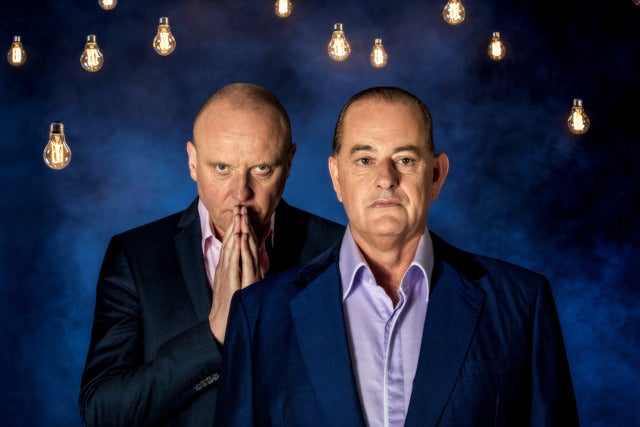The British synth-pop scene of the early '80s is one of those genres that is so recognizable and defined that you can place it almost instantly. Heavily influenced by the sounds of the '60s, synth-pop added an electronic, danceable sound with synthesizers.
Revered for originality and progressive arrangements, the new wave synth-pop movement brought about a style all its own and bands that continually pushed the boundaries of music.
The affordability of synthesizers was an inspiration for many musicians of the time, especially for two computer programmers from Sheffield, England -- Martyn Ware and Craig Marsh.
Ware and Marsh founded a band called the Future in 1977, which proudly went against pre-established music standards. Instead, they established their own traditions with cheap technology. The Future would eventually become the Human League after Philip Oakey joined as vocalist.
Ware and Marsh later split from their Human League pals and asked Glenn Gregory, a close friend and photographer who had once been considered for the Human League's lead singer post, to join them in a new project, The British Electric Foundation.
The BEF was both a band and a production company to produce and distribute material under the new moniker. Heaven 17 was the first of the acts created under BEF, with Ware, March and Gregory rounding out the trio.
Although the group didn't reach the same level of chart success as their Human League counterparts, the band is firmly etched in the minds of synth-pop and music enthusiasts who see them as one of the movement's more daring and forward-looking bands.
The lead track, "(We Don't Need This) Fascist Groove Thang," from their debut album Penthouse and Pavement (1981), peaked just outside the Top 40 before being banned by the BBC for its overtly political lyrics. Its funk elements, scattered percussion and BBC ban -- naturally -- cemented the song's notoriety for years to come.
It's difficult not to see Ware, Marsh and Gregory as pioneers in the synth-pop genre, a genre that's seen a revival in recent years. Although Craig Marsh left the band in 2007, Ware and Gregory still perform as Heaven 17 with the same enthusiasm and delight as they did in the '80s.
Watching them live makes it easy to understand why they've endured for decades. Their audacious sound and cheeky stage presence continue to place Heaven 17 in a performance class of their own.
Over the course of their career, Heaven 17 have packed venues such as The Belasco and the House of Blues (San Diego) to capacity.

